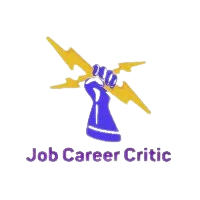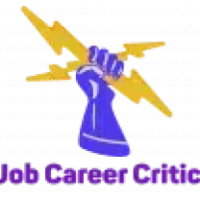What do job interviewers look for when they get resumes? The answer may surprise you, read on: This article first appeared in Quora Digest written by Yohan Kamath back in May of 2019 but still holds sway today. There has never been a busier time for Recruiter and HR departments and this rollercoaster of a ride we are on will continue for a while so making your resume stand out has never been more critical because of the plethora of opportunities never before seen due to the massive displacement of workers due to a host of reasons chief among them in some case of workers quitting and some just walking off their jobs en masse. So think as you read this article and find a way to be creative. We have resume help at jobcareercritic.com scroll to the bottom of the right column to “Tools For The Job You Fit”.
How Do You Stand Out:
During an interview (job, college, etc.) what makes a candidate stand out from the rest? Originally Answered: What are the qualities that make candidates stand out in an interview?
While interviewing any candidate, I have a set of basic expectations that absolutely must be met. These are fairly straightforward; things like your skills should match what your resume says they are, you must be proficient in the field you’re applying for, and you must be able to solve the various problems we discuss reasonably well; these are all the bare minimum to even have a candidate up for consideration.
Now coming to what makes the stellar candidates really stand out:
- I will often pick out the most interesting project on your resume and ask you to talk about it for a few minutes; I want to see how passionate and deeply knowledgeable you are about what you claim is your best. I want to know how excited and enthusiastic you are about your crème de la crème.
→ This emotion is really difficult to fake; it shows me that if I hire you and give you projects to work on that excite you, you will pour your heart and soul into them and I can sleep well at night knowing that you will do a great job with them. - In any interview, if I don’t push you to the point of feeling a little uncomfortable, I’m not doing my job right. I always do collaborative problem-solving with my candidates; that is how the real industry works and I want to see how you perform in a realistic setting; not sitting across the table from me. I will start off easy but depending on how you perform, I will push you deeper and deeper into a problem space until I see that you are a little technically uncomfortable and challenged beyond your depth. At this point I want to see how you handle this situation; how calm and composed do you stay under this pressure; how willing are you to accept it and ask for help; how receptive are you to the feedback or suggestion I give you and are you willing to grasp it; are you willing to push back on a suggestion that doesn’t make sense in that scenario or will you simply accept it?
→ These are all real scenarios at my job. On my team you will be technically challenged well beyond your depth over and over again; I want to see how you learn and grow in those moments. I want to see how you leverage your collaborative advantage, or if you choose to fly solo instead. I want to see how you respond to feedback and will often have follow-ups where I will give you an opportunity to demonstrate that you have grasped that feedback and can apply it elsewhere. - Self-awareness and the willingness and ability to spot and fix your own bugs is an interviewer’s dream. Great candidates often have one of two approaches to this; the first set will debug their algorithm/code/design as they go along. They will stop at every step and debug it to make sure that they have considered edge cases and pitfalls. They will not hesitate to call out and fix their own mistake as they proceed. The second bucket is those who will first work out a quick and rapid prototype solution that covers the MVP of the problem. They will then make one or more fine-combed passes through the solution and find bugs and corner cases as they go along. They will sometimes fix the trivial ones and call out the more complex ones and specify that they need fixing but that can possibly be done in a later iteration since they are not exactly blockers to the core solution.
→ A candidate who very clearly demonstrates that he/she knows that there’s no such thing as first-pass perfection is a very good asset to have on your team. The diligence shown in debugging tells me that they have an eye for attention to detail and understand prioritization as well as the importance of the subtle nuances in solving any problem. - Intelligent questions are your friends. I absolutely love it when an interviewee asks well-thought-out and challenging questions. Whether it’s during the problem-solving or at the end when I usually save a few minutes for the candidate to ask me questions; I look forward to questions that challenge me to think hard about how to answer them. I like to see that you have done your homework and are asking meaningful questions which will actually add value to our conversation.
→ When a candidate asks me specific questions that I know will factor into his or her decision if they are made an offer; it shows me that they are serious and want to make a well-informed decision.
Finding a stellar candidate is like locating a Snowy Owl on a distant mound in an infinite expanse of pure white. They exist, but are few and far between. If you spend enough time looking for them and then work hard to make the hike out to the mound once you locate one, you will be rewarded.
As a candidate, be that Snowy Owl that everyone wants to chase down;
as an interviewer, be that birder who doesn’t give up until they find their prize.
If you need more help on this topic go to jobcareercritic.com and look at our blogs for answers to better equip yourself for your job interview.



